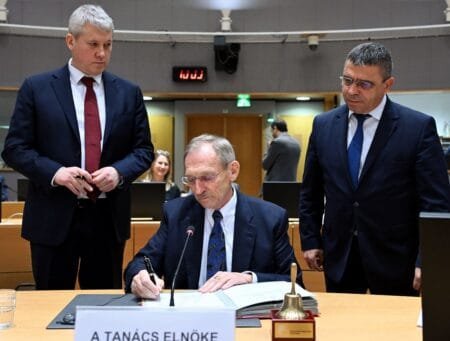A European Commission policy paper outlines five concrete actions to strengthen the right to free movement, while helping EU Member States to reap the positive benefits it brings. The policy paper clarifies citizens’ rights to free movement and access to social benefits, and addresses the concerns raised by some Member States in relation to the challenges that migration flows can represent for local authorities.
Advertisement
With over 14 million EU citizens resident in another Member State, the Commission says that free movement or the ability to live, work and study anywhere in the Union is the EU right most cherished by Europeans. EU workers have been benefiting from this right since the dawn of the European Union, with the principle enshrined in the first European Treaty of Rome in 1957.
Free movement of citizens is also seen an integral component of the Single Market and a central element of its success: it stimulates economic growth by enabling people to travel, shop and work across borders and by allowing companies to recruit from a larger talent pool. Labour mobility between Member States contributes to addressing skills and jobs mismatches against a background of significant imbalances in EU labour markets and an ageing population.
Finally, EU free movement rules contain a series of safeguards that allow Member States to prevent abuses.
The Communication “Free movement of people: five actions to benefit citizens, growth and employment in the EU” analyses the impact of mobile EU citizens on the welfare systems of host Member States. The factual evidence overwhelmingly suggests that most EU citizens moving to another Member State do so to work. They are more likely to be economically active than nationals and less likely to claim social benefits. In fact, the percentage of mobile EU citizens who receive benefits is relatively low, compared to Member States’ own nationals and non-EU nationals (Annex 3). In most Member States mobile EU citizens are net contributors to the host country’s welfare system.
The Communication sets out the rights and obligations which EU citizens have under EU law. It clarifies the conditions citizens need to meet to be entitled to free movement, to benefit from social assistance and to social security benefits. Taking into account challenges which have arisen in some Member States, it also explains the safeguards to counter abuse, fraud and error. It also outlines social inclusion instruments available to Member States and local communities facing particular pressures relating to the inflow of mobile EU citizens.
To address concerns in some EU Member States about the implementation of free movement rules on the ground, the Commission sets out five actions to help national and local authorities to:
- Fight marriages of convenience: The Commission will help national authorities implement EU rules which allow them to fight potential abuses of the right to free movement by preparing a Handbook on addressing marriages of convenience.
- Apply EU social security coordination rules: The Commission is working closely with the Member States to clarify the ‘habitual residence test’ used in the EU rules on social security coordination (Regulation 883/2004/EC) in a practical guide that will be produced by the end of 2013. The strict criteria of this test ensure that citizens who are not working may only have access to social security in another Member State once they have genuinely moved their centre of interest to that State (for example their family is there).
- Address social inclusion challenges: Help Member States further use the European Social Fund to tackle social inclusion: From 1 January 2014, at least 20% of ESF funds should be spent on promoting social inclusion and combating poverty in each Member State.
- Promote the exchange of best practices amongst local authorities: The Commission will help local authorities to share knowledge developed across Europe to better address social inclusion challenges. The Commission will produce by the end of 2013 a study evaluating the impact of free movement in six major cities. It will invite mayors in February 2014 to discuss challenges and exchange best practices.
- Ensure the application of EU free movement rules on the ground: the Commission will also set up by the end of 2014, in cooperation with Member States, an online training module to help staff in local authorities fully understand and apply free movement rights of EU citizens. Today 47% of EU citizens say that the problems they encounter when they go to live in another EU country are due to the fact that officials in local administrations are not sufficiently familiar with EU citizens’ free movement rights.
Background
20 years ago the Treaty of Maastricht extended the right to free movement to all EU citizens, irrespective of whether they are economically active or not. The specific rules and conditions applying to free movement and residence are set out in a Directive agreed by Member States in 2004 (2004/38/EC).
For 56% of European citizens, free movement is the most positive achievement of the European Union. Indeed, more and more Europeans benefit from this right and live in another EU Member State: at the end of 2012, 14.1 million citizens were living in a Member State other than their own. In Eurobarometer surveys, more than two thirds of Europeans (67%) consider that free movement of people within the EU has economic benefits for their country.
Every EU citizen has the right to live in another EU country for up to three months without any conditions or formalities. The right to reside for more than three months is subject to certain conditions, depending on the individual’s status in the host EU country.





